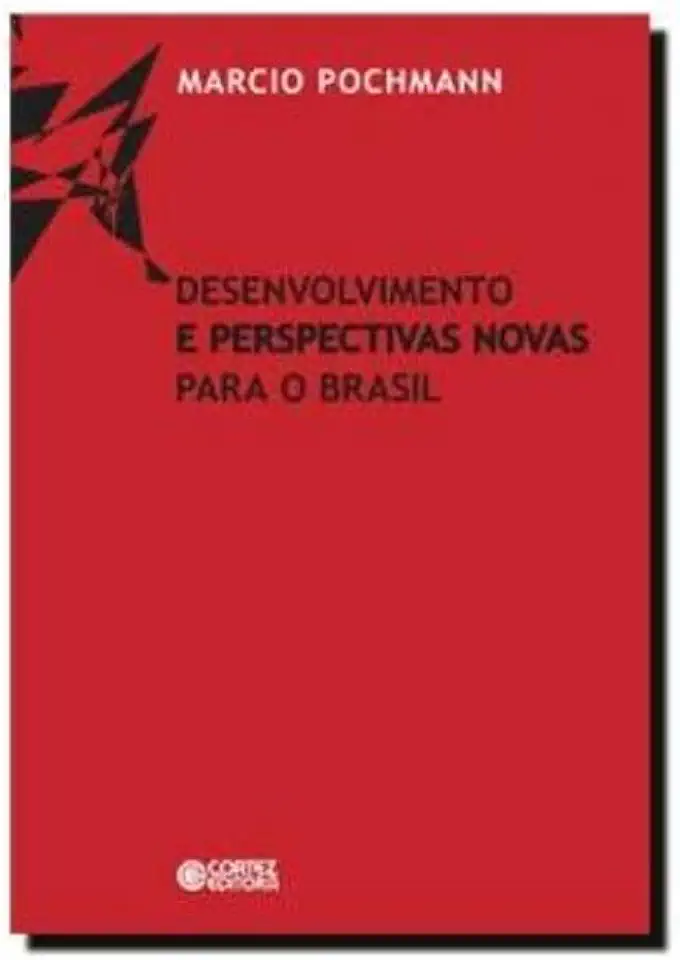
Development and New Perspectives for Brazil - Marcio Pochmann
Development and New Perspectives for Brazil: A Comprehensive Analysis by Marcio Pochmann
Introduction: A Call for Transformative Change
In his groundbreaking book, "Development and New Perspectives for Brazil," renowned economist and social scientist Marcio Pochmann presents a compelling vision for Brazil's future. Drawing on decades of research and experience, Pochmann argues that Brazil has the potential to become a global leader in sustainable development, social justice, and economic prosperity. However, to achieve this potential, the country must embrace transformative change and address the deep-rooted challenges that have hindered its progress.
Understanding Brazil's Development Trajectory
Pochmann begins by providing a comprehensive analysis of Brazil's development trajectory, highlighting both its successes and shortcomings. He examines the country's economic growth, social policies, and political dynamics, offering a nuanced understanding of the factors that have shaped Brazil's current state. Pochmann argues that while Brazil has made significant strides in reducing poverty and inequality, much more needs to be done to ensure that all Brazilians have access to opportunities for a dignified life.
Addressing Inequality and Social Justice
One of the central themes of Pochmann's book is the urgent need to address inequality and promote social justice in Brazil. He presents a wealth of data and evidence to demonstrate the stark disparities in income, wealth, and access to essential services that persist in Brazilian society. Pochmann argues that these inequalities are not only morally unacceptable but also hinder Brazil's overall development, as they limit the potential of a large segment of the population.
Reforming the Economic Model
Pochmann also calls for a fundamental reform of Brazil's economic model. He argues that the current model, which is heavily dependent on commodity exports and extractive industries, is unsustainable and vulnerable to external shocks. Pochmann proposes a shift towards a more diversified and inclusive economy, one that promotes innovation, technology, and value-added industries. He emphasizes the importance of investing in education, research, and infrastructure to create a knowledge-based economy that can compete on the global stage.
Strengthening Democracy and Governance
Pochmann recognizes that transformative change in Brazil requires a strong and effective democracy. He examines the challenges facing Brazilian democracy, including corruption, political polarization, and the erosion of democratic institutions. Pochmann argues for a renewed commitment to democratic principles, transparency, and accountability. He also emphasizes the need for participatory democracy, where citizens have a greater say in decision-making processes that affect their lives.
Embracing Sustainability and Environmental Protection
Pochmann also highlights the importance of sustainability and environmental protection in Brazil's development strategy. He argues that Brazil has a unique opportunity to become a global leader in sustainable development, given its vast natural resources and biodiversity. Pochmann proposes policies that promote renewable energy, conservation, and sustainable land use. He emphasizes the need to balance economic development with environmental protection, ensuring that future generations can also benefit from Brazil's natural wealth.
Conclusion: A Vision for Brazil's Future
In "Development and New Perspectives for Brazil," Marcio Pochmann presents a compelling vision for Brazil's future. He argues that the country has the potential to become a global leader in sustainable development, social justice, and economic prosperity. However, to achieve this potential, Brazil must embrace transformative change and address the deep-rooted challenges that have hindered its progress. Pochmann's book is a must-read for anyone interested in Brazil's development and the future of Latin America. It is a call to action for policymakers, business leaders, and citizens alike to work together to build a more just, equitable, and sustainable Brazil.